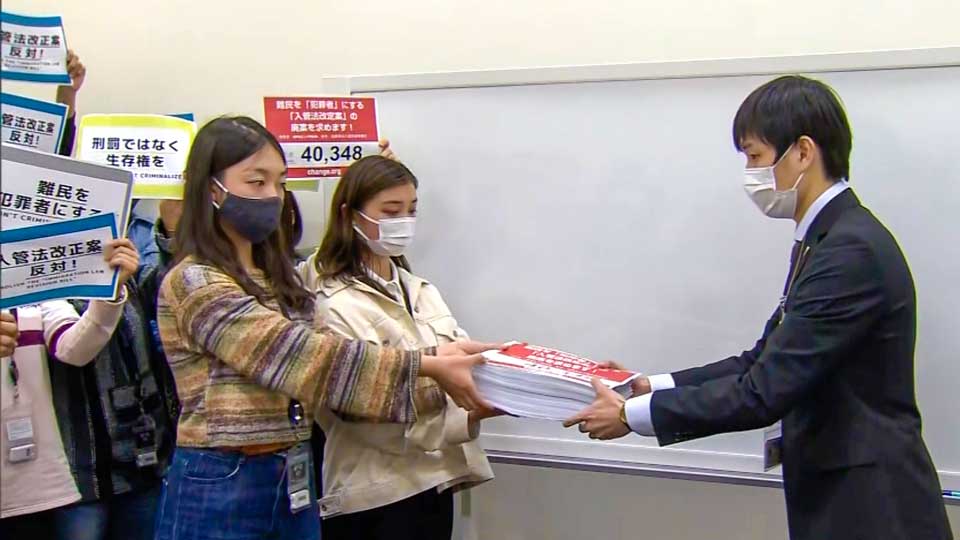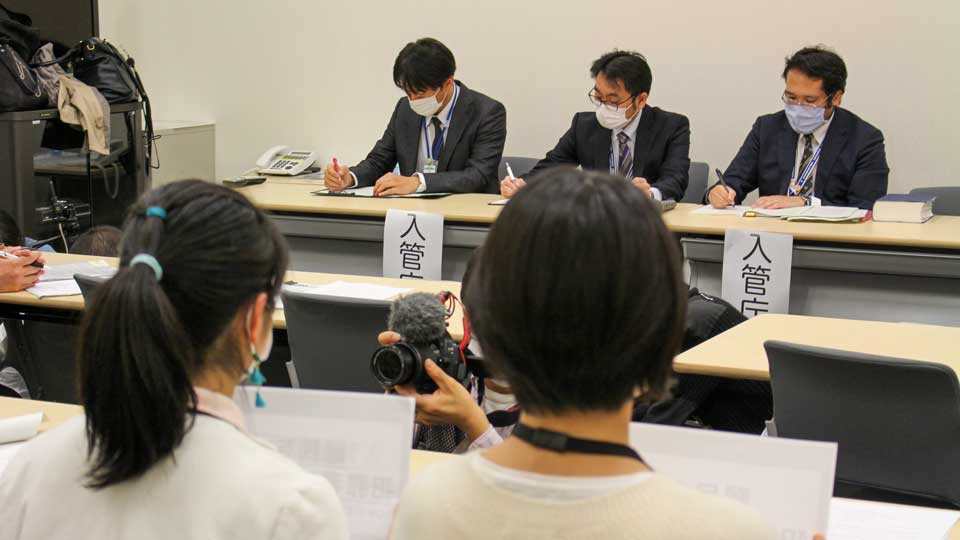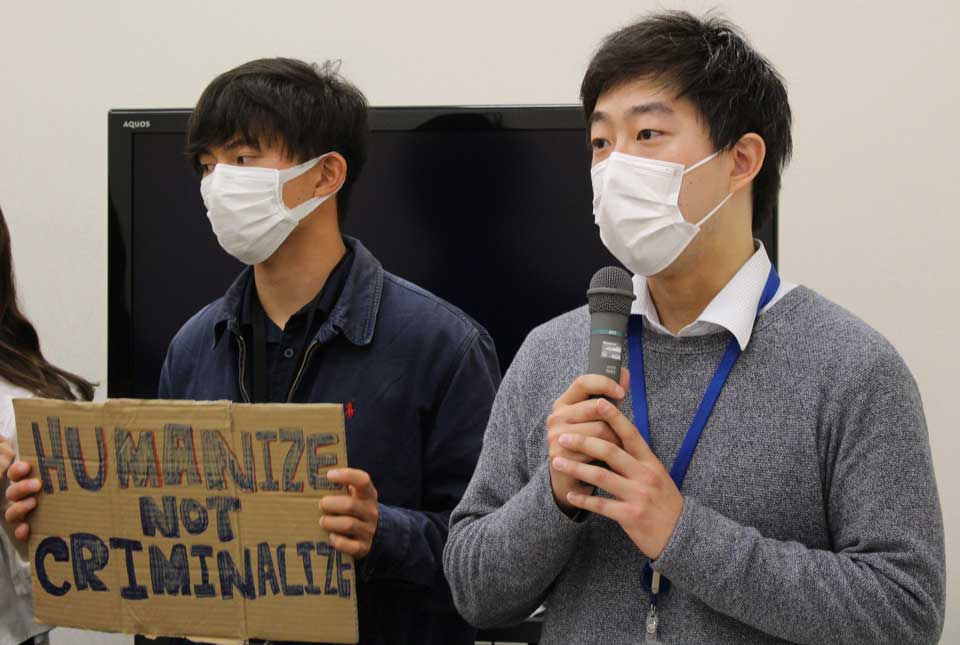The revisions are designed to address the long-term detention of some foreigners. Deaths in custody have highlighted the plight of detainees, including the cases of a Sri Lankan woman who died at an immigration facility in Nagoya last month and a Nigerian man who took up a hunger strike to protest long-term detention in 2019 in Nagasaki Prefecture.
Most foreigners who are issued deportation orders by Japan's Immigration Services Agency comply and leave the country. But those who do not are taken into custody. This includes asylum seekers. The agency says it accepted about one percent of refugee applications in 2020.
Petition gathers 40,000 signatures
One of the groups leading the protest campaign is Posse, which is run largely by people in their teens and 20s. The non-profit, based in Tokyo and Miyagi Prefecture, provides consultation services for foreign workers, students, technical trainees and asylum seekers.
Posse launched an online petition in both Japanese and English urging lawmakers to scrap the draft revision. It gathered over 40,000 signatures in two months. On April 14, about 20 volunteers, mostly university students, presented the petition to immigration officials.
They also outlined their concerns about the current proposals.

University student Iwamoto Nana does volunteer work in support of young Kurdish asylum seekers in Saitama Prefecture out on provisional release. One of them is the same age as her and has become a friend.
"My friend has already applied for refugee status three times," she says. "If the draft revision is passed, she could be forcibly deported, criminalized, and her life could be endangered."
Iwamoto notes that many others face similar situations. She says asylum seekers in Japan "are part of our society, living together with us. We should never reach a situation where their lives are taken over; they are criminalized, and excluded from our society."

Japan's standpoints
The draft revision would allow for the forcible deportation of asylum seekers who have applied for refugee status three or more times. Criminal penalties would be imposed if they failed to comply with deportation orders. This is designed to stop people making repeated applications in a bid to stall the process.
The changes, which aim to reduce the number of foreigners in detention, would permit some people on the deportation list to stay with family members or supporters until they leave the country.
A United Nations Human Rights Council on Arbitrary Detention panel issued a statement last month that maintains the Japanese proposal "falls short of international human rights standards." The working group that considered the draft revision found that the basic policy of using detention in the deportation process is unchanged. Members are concerned that some migrants would remain in custody for limitless periods without judicial review.
The UN statement points out that the revision allowing for the forcible deportation of people who have had their refugee status application denied three or more times could be a violation of international law. According to Japan's Justice Minister Kamikawa Yoko, the criticisms are misplaced.
"The draft revision was studied by a panel of experts, including international legal scholars, lawyers and NGO officials," she says. "If the UN panel had a chance to hear explanations by the Japanese government in advance, it would have correctly understood the background, content and appropriateness of the revision."
The way forward
Posse leader Iwahashi Makoto says his group is looking beyond the current battle: "Many young people are showing interest in issues facing foreigners. They oppose the draft revision and feel angry about human rights violations."
"Abolishing the draft revision is not enough. We will continue to oppose it, and join forces to seek a guarantee for foreigners - including asylum seekers - of the universal human right to live without fear of deportation or poverty. We will demand the government allows them to access social security as they don't have a safety net."


